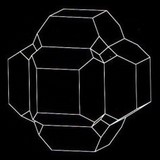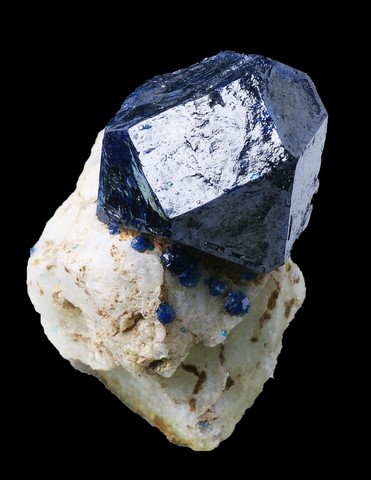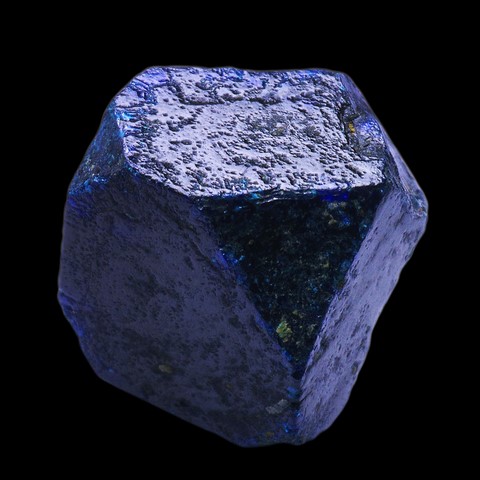BOLEITE
Class : Halides
Subclass : Oxychlorides
Crystal system : Cubic
Chemistry : Pb26Ag10Cu24Cl62(OH)48 . 3H2O
Rarity : Very rare
Boleite is a rare secondary mineral from copper deposits, typical of arid climates in a chlorinated environment (closed basins, evaporite lagoons, and marine littoral). The boleite owes its name to its locality of discovery : the Amelia Mine in Boléo in Mexico. It presents itself in cubic crystals generally of a few millimeters of edge, more rarely pseudo-cubic, pseudo-dodecahedral (photo of left) and pseudo-octahedral of a magnificent dark blue hue. It frequently constitutes aggregates comprising intergrowths with pseudoboleite and cumengeite. It is a very rare mineral, crystals over 1 cm are extremely sought after by mineral collectors.
Boleite in the World
Boleite in France
In France, boleite is reported in microcrystals in the foundry residues of the Huelgoat lead mine in Finistère (Brittany).
Twinning and special crystallizations
No twinning report for this mineral species but some cubes may have an epitaxy (oriented overgrowth) of cumengetite, and pseudo-octahedra of cumengetite appear on the 6 sides of the cubes of boleites to form a complex set (draws below).



Fakes and treatments
Some cubes could be glued on their powdery matrix....
Hardness : 3 to 3.5
Density : 5.054
Fracture : Irregular
Trace : Blue-green
TP : Translucent
IR : 2.05
Birefringence : 0
Optical character : None
Pleochroism : None
Fluorescence : None
Solubility : Nitric acid
Magnetism : None
Radioactivity : None


